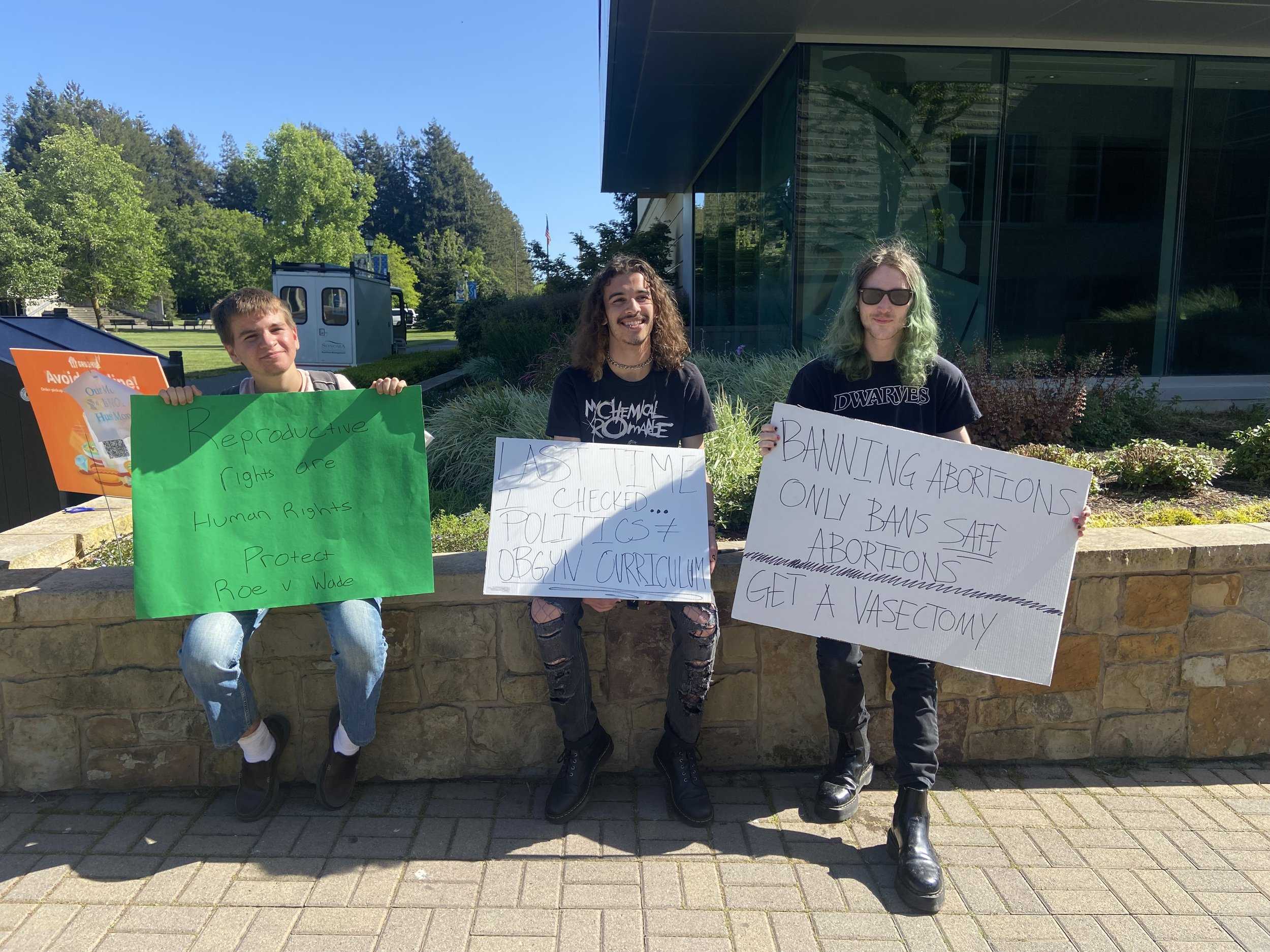For years, lawmakers and political parties have controversially debated the issue of women’s rights, specifically their right to an abortion and control over their own bodies. According to a leaked copy of an official Supreme Court draft, the Justices are ready to put the argument to rest.
Roe v. Wade, the federal case from 1973, states that under the 14th Amendment’s Due Process Clause, women have a constitutional right to choose whether or not to get an abortion before the third trimester of pregnancy. In 1992, Planned Parenthood v. Casey specifically identified the age of fetus viability as 24 – 28 weeks into the gestational period, and put in place the undue burden standard for abortion restriction. These two cases have been the basis of regulating abortions in America for years. If the Supreme Court overturns Roe v. Wade and Planned Parenthood v. Casey, there is no prior laws on abortion set in place for a nationwide standard.
Politico released a 98-page initial draft majority opinion, written by Justice Samuel Alito, voting to overturn Roe v. Wade and Planned Parenthood v. Casey. These two cases allow women the right to have an abortion before fetal age of viability. An article from the Washington Post highlights Supreme Court Justice Samuel Alito’s points as to why, “Roe has outlived any role it once played in improving women’s economic security.” Alito states, “Federal and state laws ban discrimination on the basis of pregnancy… Leave for pregnancy and childbirth are now guaranteed by law in many cases… [and] costs of medical care associated with pregnancy are covered by insurance or government assistance.”
In the 98-page initial draft, Alito shares points on the court’s opinions of Roe v. Wade and Casey v. Planned Parenthood. “Roe was egregiously wrong from the start. Its reasoning was exceptionally weak… The Constitution makes no reference to abortion, and no such right is implicitly protected by any constitutional provision… Roe and Casey have enflamed debate and deepened division.”
It is important to note that the Supreme Court does not want to ban abortion nationwide, but they believe that, “It is time to return the issue of abortion to the people’s elected representatives.” The Supreme Court wants to overturn Roe v. Wade so there would be no federal laws supporting legal abortions, therefore allowing state’s to make their own laws and regulations on abortions. With the controversial issues remaining unresolved, the Supreme Court’s decision will not be made official until June or July.
Politicians are confident that the state of California will still allow for safe and legal abortions. However, the New York Times predicts that up to 28 states are likely to ban or further limit abortion. Their analysis includes, “four ‘uncertain’ states — Kansas, Michigan, North Carolina and Wisconsin — that either have pre-Roe bans or other gestational limits on abortion… Texas, which banned most abortions after about six weeks of pregnancy last year, and… Florida, which recently enacted a 15-week ban.” There are 22 other states predicted to enact abortion bans or restrictions, and if these states criminalize abortion, approximately 33.6 million women will be unable to get an abortion within their own state.
Faith Long, an SSU alum with a degree in molecular biology, shares that, “…for the last 50 years, the US has had consistently higher child mortality rates than the 19 other developed nations, and still has the third highest infant mortality rate today. Mississippi alone has a higher infant mortality rate and maternal mortality rate than the US average, while also having extremely limited access to health care for women before, during, and after pregnancy. It would be more appropriate to term the movement pro-birth since the care for human life does not extend past pregnancy.”
If Roe v. Wade and Planned Parenthood v. Casey are both overturned, women seeking an abortion in these states will either have to travel across state lines, or purchase abortion pills online (as of now, there is no way to restrict online abortion pill purchases). These options are costly, time consuming, unobtainable, and just plain unsafe for some women. Abortion laws and regulations can be a death sentence to impoverished, undocumented, and unpriviledged women.
Elizabeth Warren, a state senator for the state of Massachusetts, spoke to the Supreme Court Decision. “This will fall on the poorest women in our country. This will fall on the young women who have been abused or victims of incest. This will fall on those who have been raped. This will fall on mothers who are already struggling to work three jobs to be able to support the children they have.”
American women of all political parties, racial backgrounds, and economic status will be anxiously awaiting to see what the US Supreme Court’s decision will be this summer. The Supreme Court’s war on abortion doesn’t simply stop women from getting abortions, but it does make it more difficult for these women to find safe ways to get them.
STAR// Maych Rowell
Students sit outside the Student Center with signs after a Supreme Court document regarding Roe v. Wade was leaked.





![[Both photos courtesy of sonoma.edu]
Ming-Ting Mike Lee stepped in as the new SSU president following Sakakis resignation in July 2022](https://sonomastatestar.com/wp-content/uploads/2024/04/CC4520AB-22A7-41B2-9F6F-2A2D5F76A28C-1200x1200.jpeg)


























